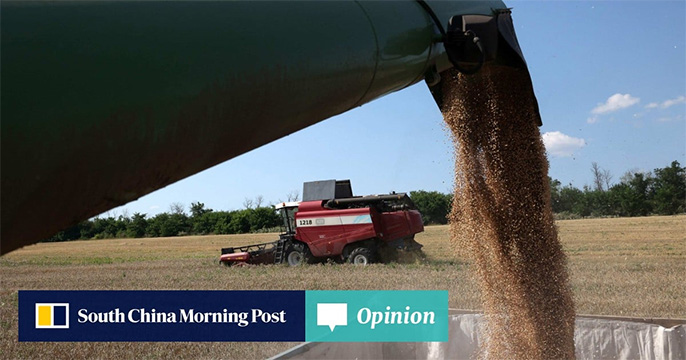
In a move that could shake up the global agricultural market, Russia is pushing to establish a BRICS grain exchange. Russian President Vladimir Putin has endorsed the initiative, which seeks to rival the Western-dominated grain pricing system and challenge the US dollar as the world’s main trading currency, writes ‘The South China Morning Post’.
Despite its conflict with Ukraine and the sanctions imposed by Western countries, Russia remains a major agricultural player, supplying nearly a quarter of the world grain market, according to Russian data. It exported at least US$43.5 billion of agricultural exports last year and plans to export up to 65 million tonnes of grain this year.
A BRICS grain exchange would bring together some of the world’s biggest grain buyers and exporters. Last year, members of BRICS (Brazil, Russia, India, China and South Africa) accounted for an estimated 42 per cent of global grain production at nearly 1.2 million tonnes, and 40 per cent of global consumption, according to Russia’s agricultural ministry.
With the inclusion of Saudi Arabia, Egypt, the United Arab Emirates, Iran and Ethiopia this year, the bloc’s estimated grain output now surpasses 1.24 billion tonnes, with consumption at 1.23 billion tonnes.
There are implications for the West too. A BRICS grain exchange could bolster Moscow’s geo-economic influence over the participating nations. It would reinforce Russia’s role as a vital supplier of grain and fertiliser to these countries, enhancing their economic reliance and maintaining the Putin government’s considerable economic and diplomatic leverage.
For BRICS members, such a grain exchange could reduce uncertainty by helping to ensure a stable supply of grain amid global supply chain disruptions and escalating food insecurity concerns.
Many BRICS members are resource-rich countries and their top exports include crude petroleum oil (such as from Iran and the UAE), iron ore, soybeans and sugar (from Brazil), fertilisers (from Russia and China), and coffee and oilseeds (from Ethiopia). Given this abundance, a grain exchange among them could pave the way for stronger inter-regional trade or even a broader Brics commodities exchange.
A BRICS grain exchange could strengthen geopolitical and geostrategic alignment between participating nations through stronger agricultural and trade ties with Russia, potentially leading to shifts in the global power dynamics.
Russia’s proposal of a BRICS grain exchange has significant implications for global agricultural dynamics, ranging from geopolitical and geo-economic realignments to increased competition in agricultural trade. For traditional exporters such as Australia and the US, it is a call to reassess their national policies and strategies to navigate the evolving landscape of international trade to maintain competitiveness.
read more in our Telegram-channel https://t.me/The_International_Affairs

 11:33 01.04.2024 •
11:33 01.04.2024 •






















